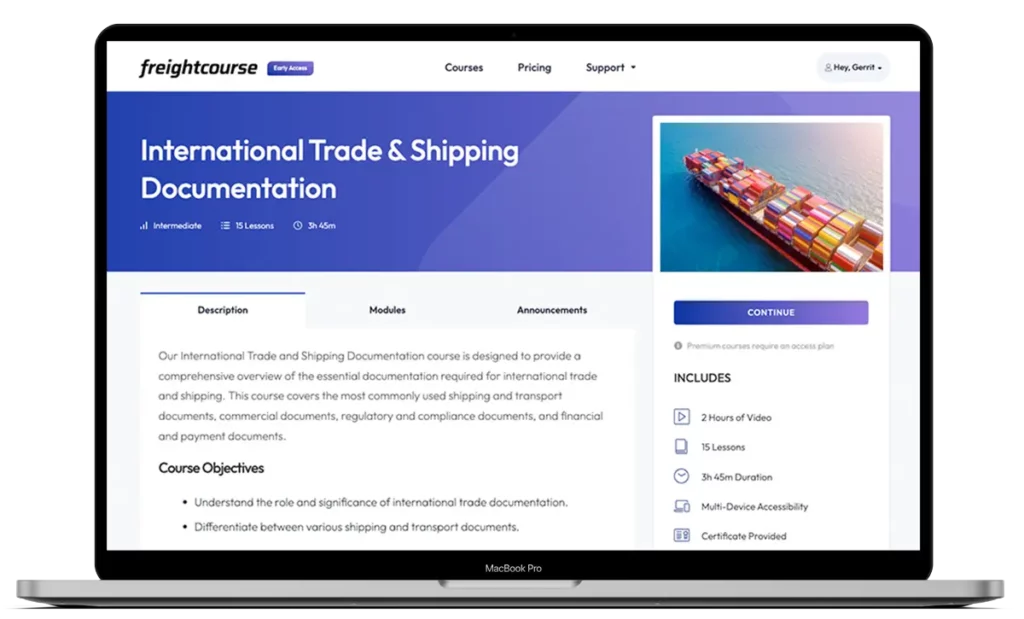According to the Economics and Industry Data from American Trucking Associations, over 95.7% of US trucking companies and owner-operators have small fleets consisting of 10 or fewer trucks.
Most trucking companies operate on limited cash flow and seek payment for services rendered to brokers and shippers as early as possible. This is crucial, as they need to offset their cost for truck expenses, such as fuel, tolls, repairs and maintenance, lodging, taxes, and more.
While outlaying these types of costs remains challenging, trucking companies employ different workarounds to ensure they have sufficient capital to carry out their day-to-day operations with tight cash flow.
Some truckers use credit cards to meet their daily needs while accumulating debt which can be paid by the end of the billing period, while others opt for bank loans to fund their long-term expenses and use the money they make from hauling cargo to repay the loans with interest.
However, there is another option most truckers new to the industry are unaware of called factoring. Freight factoring is one of the most popular solutions used by truckers to overcome cash flow challenges that help them finance their fuel, repairs, and other day-to-day expenses.
In this article, we’ll discuss in detail what factoring is, how it works, how much it costs, its pros and cons, and several alternatives.
What Is Factoring in the Trucking Industry?
Optimal cash flow management is a fundamental aspect of owning and operating a trucking company, regardless of the fleet size or scale of operations. Understanding how money moves throughout the value chain helps create a safety net by prompting truckers to balance their inflows and outflows.
With proper financial planning and cash flow management, small trucking companies and owner-operators can grow, expand, and improve their operations by keeping finances organized and easily accessible.
More importantly, they can ensure they have a working capital to prevent disruptions. Similarly, large trucking companies must ensure they have sufficient capital to pay driver wages and maintain their large fleets.
Furthermore, to stay ahead of the competition, one of the many selling propositions trucking companies use to attract shippers is longer credit terms, often at the expense of their cash flow.
In light of these credit arrangements, freight factoring offers a viable solution to operating with limited cash. Essentially, it enables companies to receive up to 99.5% of their unpaid trucking invoices from a transportation factoring company in less than 24 hours.
However, some factoring companies may break down the payments into two or more installments, until they receive full payment from shippers.
Hence, many trucking companies use factoring to maintain a steady cash flow for undisrupted operations instead of waiting 30, 60, or even 90 days to receive payment from shippers or brokers.
In essence, freight factoring allows trucking companies to continue paying for fuel, tolls, wages, and other expenses with cash through a factoring company, instead of relying on loans or credit.
How Does Factoring Work?
Freight factoring is a relatively straightforward process. It involves transferring or “selling” unpaid freight invoices to a third-party company. The third-party factoring company buys those invoices for slightly less than the total amount.
The key benefit this innovative solution offers is transferring the waiting period to the factoring company and paying trucking companies what they’re owed from shippers almost immediately.

Hence, for small trucking companies and owner-operators, freight factoring can be a crucial solution that allows them to operate on a tight budget and maintain a steady cash flow for a small cut of their profits.
At the same time, freight factoring companies make money from a small percentage of the unpaid invoice amount. Every freight factoring company has a different application and payment process that depends heavily on risk and volume.
A typical application requires trucking companies to submit their unpaid invoices. Approval and payment percentage depend on several factors, including monthly invoice volume, customer base, credit time (typically 30, 60, or 90 days), and an estimate of your operating capital.
For instance, if you have monthly invoices of larger amounts, most factoring companies will offer you a percentage closer to your full invoice amount.
Similarly, working with multiple brokers or shippers can improve your chances of approval as it lowers the risk of failed payments from a single debtor. Overall, every factoring company has different criteria and percentage payouts.
On that premise, there are two types of factoring offered in the freight industry. Thus, you need to ensure you learn about their differences before choosing a factoring company.
Recourse Factoring
Companies offering recourse factoring take no liability or responsibility for shippers or brokers who default on their payments.
Hence, recourse factoring typically offers relatively better rates compared to non-recourse factoring. As a result, it’s a more viable solution for large trucking companies with sufficient operating capital and resources to cover bad debt expenses.
Below is an example of how recourse factoring works and how it can affect smaller carriers:
Trucking Company A is an owner-operator transporting cargo for a frozen food chain distributor. It offers the client a 30-days credit term to secure the distributor’s load. Upon delivery completion, Trucking Company A sends an invoice to the client and a copy to the factoring company. The factoring company pays Trucking Company A after processing the invoice within the same day. Using the payout, the trucking company gets enough capital to pay for fuel, lodging, backhaul trips, and other expenses. However, after 35 days, Trucking Company A received a notice from the factoring company that their client defaulted their payment for that invoice due to financial crises. Since the factoring company offers recourse factoring, the trucking company would be liable to pay the full amount of the invoice on top of any aging fee.
Non-Recourse Factoring
Non-recourse factoring companies, in contrast, take full liability and responsibility for shippers or brokers who fail to pay their invoices. As a result, this option comes with significantly higher percentage rates.
However, since it transfers the risk of bad debt to the factoring company, most small trucking companies are enticed to opt for this option. They are willing to receive a lower payout if it means they won’t have to pay the factoring company for any defaulted payments on the shippers’ or brokers’ part.
Below is an example of how non-recourse factoring works:
Trucking Company B operates with a small fleet of three trucks and has just secured a large contract for transporting 5-10 loads daily for a manufacturer’s export project. The company offers a 90-day credit term to secure the project. After a few months into the project, Trucking Company B expanded its fleet to six trucks to accommodate their clients’ demands and timelines. However, an economic downturn affects the manufacturer and forces them to downsize and accumulate debt. The freight invoice had been left to age over 90 days and was unpaid due to the circumstances. However, since Trucking Company B opted for non-recourse factoring, its factoring company cannot hold it liable for the defaulted payment. Therefore, Trucking Company B is not burdened by a lack of cash flow to pay the truck expenses of their new fleet and can focus their efforts on securing other clients.
How Fast Do Factoring Companies Pay?
Most factoring companies in the freight industry have a healthy bankroll due to the investments of several companies. Some also take short-term or long-term loans to enable quick payouts.
However, the rate at which factoring companies pay trucking companies depends on several factors. On average factoring companies pay truckers as quickly as a few hours to as long as seven days (whatever the agreement states).
Some companies, especially those with non-recourse programs, often hold a certain amount of the payment as collateral until shippers clear the invoices. In this scenario, payouts usually take several days.
How Much Do Factoring Companies Take?
As explained earlier, factoring companies make money by cutting a percentage of the trucking company’s account receivables (to be more specific, their unpaid invoices).
The amount they cut serves as their fee or profit for their services and varies from as little as 0.5% to as high as 6%, depending on the factors explained in the previous sections – the type of factoring (recourse or non-recourse), trucking company’s monthly invoice volume, and several others.
Depending on the payment duration, some factoring companies also charge additional fees, such as aging fees and admin fees.
Advantages of Factoring
Today, thousands of trucking companies in the United States opt for freight factoring to maintain a steady cash flow and minimize disruptions. In the last few decades, it has played a vital role in helping small trucking companies, and owner-operators scale their operations and expand their fleet.
Below are the key advantages that freight factoring offers:
- Instant Revenue or Income – The biggest tangible benefit freight factoring offers is a quick payout. With this option, companies don’t have to wait for shippers or brokers to pay their invoices. Therefore, they can continue to pay overheads and other expenses without disrupting operations or amassing a huge credit debt affecting their scores and other expenses.
- Close Skill & Resource Gap – Many trucking startups or small companies lack the expertise, resources, or time to collect their debt. In most cases, they’re either too busy with hauling cargo or don’t have sufficient accounting and supply chain management skills to manage this aspect of operations. Hence, by opting for factoring, they can outsource this crucial function to experts for a small price and focus on their core activities and competencies.
- More Working Capital – Many trucking companies understand that offering credit terms to shippers is a trick of the trade. Hence, they try to ensure they have enough working capital even if they don’t receive payments right away. However, opting for factoring enables them to receive payments quickly and operate with a much larger working capital. With more capital, they can invest in growth initiatives, such as expanding their fleet or digitalizing their supply chain processes with new technologies for tracking, fleet management, and security.
- Business Continuity – Business continuity in the trucking industry refers to the level of readiness of a company or owner-operator to maintain critical functions. By receiving invoice payments from factoring companies, small trucking companies can continue to afford fueling, lodging, food, and other necessities to continue hauling cargo for clients without waiting for pending payments to clear.
- Low Barrier to Entry – Factoring companies have much friendlier application and approval criteria than banks or credit unions. They only check the credit history of their clients and have a much shorter waiting period.
- Attractive Benefits – Many factoring companies in the US offer additional perks on top of quick invoice payments to attract more trucking companies. For instance, some offer discounts on repairs or maintenance while others offer discount fuel cards, lodging discounts, accounting services, and more.
Disadvantages of Factoring
As you can see, freight factoring offers a wide range of benefits any trucking company can reap to improve their cash flow and grow their businesses. However, there are a few drawbacks you should know beforehand, that include:
- Factoring Facility Hours – Most factoring companies in the United States don’t operate over weekends or past standard business hours. Since trucking companies usually operate unceasingly, the timing restrictions make applying for and obtaining payments difficult. For instance, if a driver completes a delivery on a weekend, they would have to wait till Monday to be able to apply for factoring. This could lead to an unnecessary layover, especially if the trucking company doesn’t have sufficient capital to haul more cargo.
- Additional Costs – Many factoring companies charge additional fees for their services to offset some of the risks of non-payment from the shipper’s end, especially for clients offering long credit terms to secure loads.
- Hidden Fees – Some factoring companies fail to highlight all fees during contract discussions. As a result, many trucking companies incur different hidden fees, such as admin fees, renewal fees, bookkeeping fees, and more. Therefore, it’s recommended that you read the fine print and the company’s terms and conditions before opting for its factoring services.
- Contract Bound – By signing with a factoring company, you would be bound to their terms and conditions until your contract is complete. Early termination usually incurs an exit fee to offset some of the amounts the factoring company could have earned till the end of the tenure.
- Risk of Financial Overcommitment – Having invoices paid quickly by a third-party company sounds like a great option. However, it can sometimes be deceiving, especially if the company offers recourse factoring. In this case, the trucking companies that work with them would have to incur a percentage loss from their invoice payments and pay additional fees (if any), on top of reimbursing the factoring company in full if shippers default on payments.
Alternative Financing Methods
Although freight factoring remains one of the most popular methods of maintaining healthy cash flow, trucking companies can opt for alternative solutions, such as bank loans, QuickPay, and credit facilities.
They can opt for these solutions solely or bundle them with factoring to enjoy the benefits of each. Below are the most popular alternative financing methods in the trucking industry.
Bank Loans
Traditional bank loans have long been the go-to strategy for businesses looking to fund their operations and take care of large expenses. However, when it comes to trucking loans, lenders have strict approval criteria.
For instance, you have to be in the business for at least 12 months before you can apply for a trucking business loan. Moreover, you need to have a credit score of 650+ and revenue exceeding $50,000.
As a result, factoring is a much better option for trucking startups or small companies. However, opting for a bank loan can get you access to more funds for business growth since factoring will only pay you what you’re owed by shippers.
Many trucking companies combine both options to improve their workflow. For instance, they can use the quick payments collected from factoring companies to consistently repay the bank loans with interest while reaping the benefits of accelerated growth.
QuickPay for Trucking
QuickPay is another popular payment method that offers trucking companies a faster option of getting paid, usually between two to five days. However, these payments are offered by brokers who typically charge between 1% and 5% of the invoice amount as their fee for accelerating your payment receipt and maintaining your cash flow.
While this option is not too different from factoring, it offers a few other perks. The biggest advantage is the potential promise of more loads. Many trucking companies rely on brokers to secure loads.
Therefore, maintaining a good relationship with them can ensure business continuity, especially for new owner-operators in the competitive freight market. The downside is that many brokers charge more than factoring companies.
Therefore, many large companies that don’t rely on brokers opt for factoring instead for better rates. Since not all brokers offer QuickPay services, trucking companies would also make use of factoring at the same time.
More importantly, since brokers only offer payments on their loads, trucking companies can opt for factoring companies to finance invoices of other clients.
Credit Facilities
Finally, credit facilities, such as cards are another popular financing tool truckers and carriers use to pay for trucking expenses while they await payment from shippers.
Credit cards have been around for decades and most American consumers, including drivers and owner-operators, understand how they work and use them for their day-to-day expenses.
However, since trucking expenses are usually higher than paying for groceries or lodging, they usually result in higher interest rates and annual percentage rate (APR) fees due to high utilization ratios. Moreover, accumulating debt can leave a dent in your credit history and score, affecting future purchases.
Since factoring pays you for what you’re owed, you’re not building debt or paying interest. Instead, you’re being charged a small amount of money to receive your payments faster.
Today, most trucking companies combine factoring with credit cards to balance their cash flows. For instance, they use their credit cards to take care of relatively small expenses, such as fuel or lodging, and use payouts from factoring for rent, repairs, maintenance, taxes, and other higher fixed or recurring expenses.

Get Free Course Access
If you enjoyed the article, don’t miss out on our free supply chain courses that help you stay ahead in your industry.

Andrew Lin
Co-Founder & Writer
at freightcourse
About the Author
Andrew is a multi-business owner with over 12 years of experience in the fields of logistics, trucking, manufacturing, operations, training, and education.
Being the co-founder of freightcourse has given him the ability to pursue his desire to educate others on manufacturing and supply chain topics.
Follow us